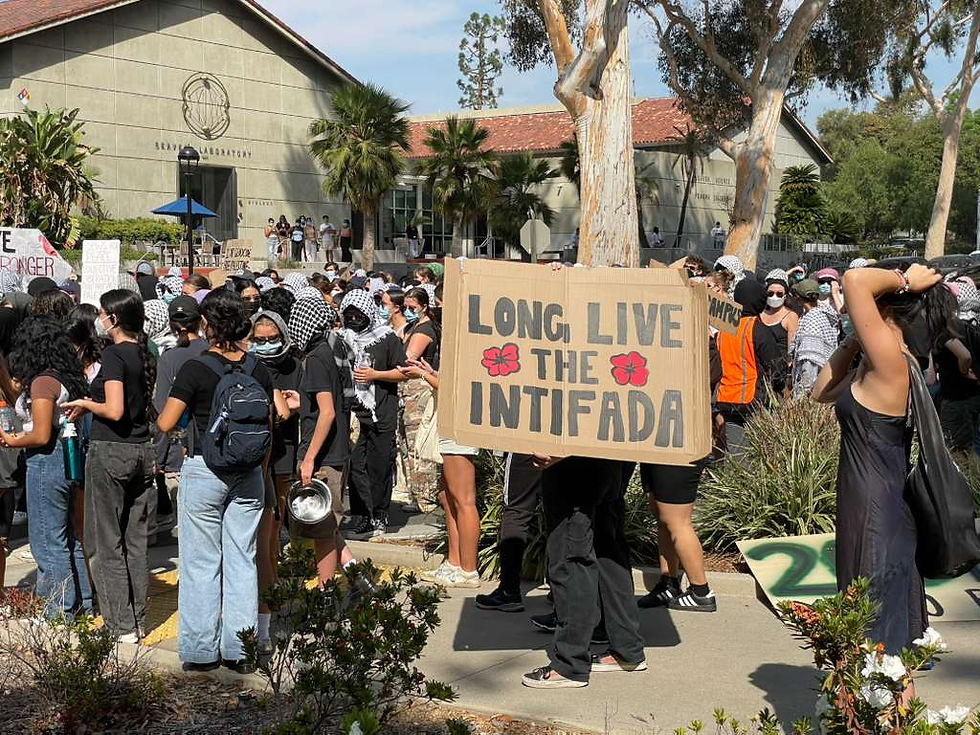Student Op-Ed: Outdoor Clubs Are Too White
- The Claremont Independent

- Nov 15, 2017
- 3 min read
In an opinion editorial for the Student Life, the administration-funded student newspaper at the Claremont Colleges, a white Pitzer student frets that the colleges’ outdoor programs, though open to all students and well-funded, are “predominantly white spaces” that deny people of color “access to the outdoors.”
The article, written by Malcolm McCann, a freshman at Pitzer College—one of the member institutions of the Claremont Colleges—calls out clubs like Pitzer Outdoor Adventure (POA) and On the Loose (OTL), among the most amply funded outdoor clubs at the Claremont Colleges, for being “predominately white spaces.”
“Both clubs claim to be accessible: while trips are open to any student wanting to go, not everyone feels the same ease in entering the outdoors. This discomfort is unfortunately caused by existing racial boundaries,” McCann proposed.
The article helpfully explains that white imperialism, as well as the fact that three prominent naturalist figures in U.S. history happen to be white, generate this pervasive racial exclusion:
“Historically, white people in imperialist conquests have appropriated land as their own. North America rightfully belongs to indigenous communities, yet it has been taken away from them by force. Consequently, a false sense of ownership of nature permeates white America.”
“Similarly, the image of a modern outdoor enthusiasts is white, as is the historical image of a naturalist. The great icons of nature – John Muir, Walt Whitman, Henry David Thoreau – are all white men. At present, most famous rock climbers are also disproportionately white,” McCann wrote.
The author takes the term “outdoorsy” as another expression of “whiteness” that excludes people of color from outdoor activities.
“This whiteness manifests in the term “outdoorsy” – a descriptor for those who spend a significant time in the outdoors, who are equipped with the necessary gear, and who feel connected to nature,” he says. “The image of the “outdoorsy individual” is an exclusive classification that gives white people the authority to venture into the outdoors freely, leaving people of color behind.”
McCann also points to financial barriers preventing students of color from spending time outdoors. “Many National Parks are hundreds of miles from large cities. Consequently, only those with access to a vehicle and money for gas will be able to enjoy them” he explains. “Similarly, only students with economic privilege have the resources to attend summer programs that teach wilderness skills.”
He adds that the “emphasis on acquiring requisite skills … excludes low-income individuals.”
The Claremont Colleges’ outdoor clubs, however, are extremely well-funded, as McCann concedes, and students’ financial barriers usually are surmounted with the assistance of college funding. In addition to heavily subsidized transportation options for students making their own trips to the outdoors, Pomona College’s outdoor club sponsors several free or nearly-free trips a year, as well as loaning gear to any 5C student at no charge.
At Claremont McKenna College, the Outdoor Initiative organizes and funds several outdoor camping trips during holidays like Thanksgiving and Fall Break. At Pitzer College, the “Pitzer Outdoor Adventure” club of which McCann is a member began this school year with over $7,500 of funding.
McCann suggests several solutions to the inclusivity crisis he claims to identify in his article. Among these are affirming that “nature exists as a collective space owned by all by virtue of being human, not by virtue of being white,” having “more accessible, entry-level workshops and trips that do not require advanced technical skills,” and encouraging white people not to exert domination of the word “outdoorsy.”
McCann’s outcry against outdoor clubs and activities is not the first to come out of the Claremont Colleges—last year a speedo hike organized by the On the Loose outdoors club of the Claremont Colleges was cancelled over concerns of “body image” and “bro-iness.”
Interestingly, McCann is a white student, sporting hiking gear in his Facebook profile photo. When asked for further information, McCann asked to remain off the record, and did not address whether he is part of the problem he identifies.
Photo: Flickr / Adam Bautz
.png)



Comments